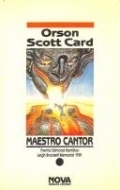What do you think?
Rate this book


375 pages, Hardcover
First published July 1, 1980
You know it's not your usual story when a sentence
like this suffices to describe Ansset's life as
Emperor of the Galaxy:
So Ansset was crowned and reigned for 60 years.